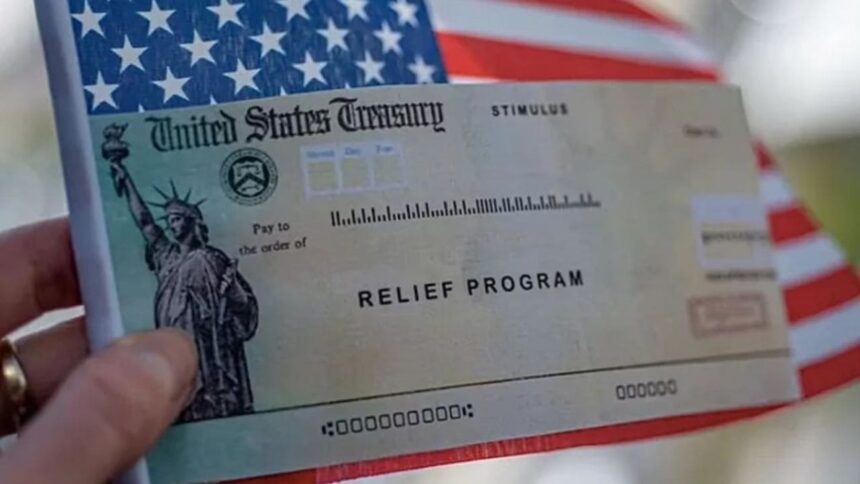Dealing with tax debt is not enjoyable for anyone, but occasionally life throws a financial curveball that makes settling your taxes seem unattainable. For taxpayers under great financial strain, the IRS Hardship Program might be the solution.
This program guarantees people are not driven more into financial struggle and provides temporary relief. Here is what you should know.
The IRS Hardship Program Explained
Known as “Currently Not Collectible” (CNC) status, the IRS Hardship Program offers temporary protection for people unable to pay their tax obligation compromising their ability to cover basic living expenses. Under this status, the IRS stops collection actions like bank account levies or wage garnishments.
Any tax refunds will be used against the remaining debt; meanwhile, interest and fines on the unpaid tax debt keep increasing.
For more details on how to apply for this program and its benefits, visit The IRS Hardship Program: How To Apply For Tax Debt Relief.
Who is eligible for the IRS Hardship Program?
The IRS Hardship Program is not for everyone. Eligibility is decided on a case-by-case basis and focuses on the taxpayer’s financial situation. Eligibility is decided by the IRS considering such elements as
Income and required living costs—e.g., housing, utilities, food, transportation.
unplanned or medical costs
To qualify, taxpayers have to show that settling the tax debt would cause major financial difficulty and prevent them from satisfying their fundamental living requirements.
To qualify, taxpayers have to show that settling the tax debt would cause major financial difficulty and leave them unable to satisfy their basic living needs.
How to Apply for the IRS Hardship Program
Applying for CNC status requires careful documentation. Here’s a step-by-step guide for getting started:
- Gather Financial Records You’ll need to provide proof of income, expenses, and assets. This includes pay stubs, bank statements, and bills for necessary living costs.
- Complete Form 433-A or 433-F These forms provide the IRS with a detailed financial picture. Accuracy is critical, so double-check everything before submitting.
- Submit Your Application If you’re unsure about how to navigate the process, working with a tax professional can streamline the application and ensure accuracy.
- Await IRS Review The IRS will review your financial information to determine if IRS Hardship Program status is suitable.
Should CNC status be approved, keep in mind that it is only transient. The IRS will periodically check your financial status to see whether it has changed. The IRS will periodically check your financial state to see if it has changed.
Important Factors for CNC Status
- Interest and Penalties Accrue: While collection activities stop, your tax debt will continue to accumulate interest and penalties. This means the total balance owed could increase over time.
- Refund Offset: Any future tax refunds will be automatically applied to your outstanding debt until it’s resolved.
- Not a Permanent Solution: CNC status is not a long-term fix. Taxpayers must proactively address their tax liabilities to avoid additional financial burdens.
Substitutes for the IRS Hardship Program
Should you not qualify for CNC status, the IRS provides other ways to control tax debt such:
- These let people pay off their debt in smaller monthly installments.
- Should payment in full cause major hardship, the Offer in Compromise (OIC) program allows people to settle their debt for less than what they owe.
Taxpayers under unanticipated events could be eligible for penalty waivers. - Examining these possibilities and deciding which one fits your circumstances would be aided by consulting a tax expert to negotiate the complexity.
Examining these possibilities and deciding which one fits your circumstances would benefit from advice from a tax expert since it will help you negotiate the complexity.
Ways Tax Law Advocates Can Assist
Navigating IRS programs such as the Hardship Program or other types of tax relief can seem daunting. A qualified tax law advocate ensures every available option is considered, guides, and streamlines the process.
Having an expert on your side can determine whether you resolve a tax problem fast or prolong it needlessly. For more on how the program works and additional tips, read The IRS Hardship Program: How To Apply For Financial Relief.
For those finding it difficult to fulfill their tax responsibilities, the IRS Hardship Program is a financial lifeline. Though it doesn’t erase debt, it provides momentary relief by stopping collection efforts and letting taxpayers concentrate on recovering. The first stage in creating an informed decision is knowing eligibility criteria, application processes, and related drawbacks.
Should you be uncertain or overrun, do not hesitate to get expert counsel. Tax law specialists can lead you in the direction of the finest course for settling your tax debt since they know the complexities of programs like CNC status.
About Tax Law Advocates
Tax Law Advocates is a professional firm dedicated to assisting individuals and businesses with complex tax-related issues. Specializing in tax resolution services, they help clients navigate challenges such as tax debt, IRS disputes, audits, and penalties.
With a team of experienced tax attorneys, enrolled agents, and financial experts, Tax Law Advocates works to negotiate with the IRS on behalf of their clients, aiming to reduce tax liabilities and secure affordable payment plans.
Their services are tailored to each client’s unique situation, offering solutions like offers in compromise, penalty abatement, and lien or levy releases. The firm has built a reputation for providing personalized, effective support to those facing overwhelming tax burdens, helping them regain financial stability.
Related News:
Thailand’s Revenue Department Warns Online Workers Over Taxes
The opinions or information expressed in this press release are solely those of the authors and do not necessarily reflect the views of the Chiang Rai Times. For more information on our sponsored content policy Click Here














